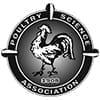Toxins in moldy corn sicken birds and can pass into chicken eggs, meat - Interpretive Summary
Published: May 5, 2023
By: https://poultryscience.org/
by Sam Shafer
Poultry researchers show there’s no safe amount of moldy corn
Poultry scientists are taking a close look at moldy corn in an effort to better protect animal and human health. In a recent study, published in Poultry Science®, researchers measured bird performance and examined mycotoxin levels when laying hens were fed different amounts of moldy corn.
Mycotoxin are toxins made by fungi (mold). Mycotoxins such as aflatoxin B1 (AFB1), zearalenone (ZEN) and deoxynivalenol (DON) are common in foodstuffs and animal feed, especially when food is stored in warm and humid conditions. High levels of these mycotoxins are known to cause illness and even death in animals and humans.
The new research, led by scientists at China’s Qingdao Agricultural University, gives scientists a better idea of how mycotoxins specifically affect products from laying hens. “Although in some cases low-levels of mycotoxin contamination may not affect animal growth or performance, mycotoxins may be carried over into animal liquid and tissue products,” write study authors Fenghua Zhu et al. “Mycotoxin residues poses a risk to food security and safety because increased residues in animal products cause economic losses through border rejection in the global and local market ultimately aggravating the macro- and micronutrient insecurity, especially in developing countries.”
For the new study, the research team fed chickens fed with either 20 percent, 40 percent or 60 percent moldy corn for 20, 40 or 60 days. While mycotoxins were present in the feed for the control group, the levels were below the mycotoxin limit standard of China. As the study progressed, the researchers used mass spectrometry to analyze the mycotoxins in the feed, muscle, edible viscera and eggs.
In each experimental group, feeding moldy corn led to bird health issues, including impaired performance, antioxidant capacity, immune function, liver function and metabolism of laying hens. The reduced immune function was especially worrying. Previous studies suggest these birds had lower activity from their immune system’s B cells (which make antibodies to fight pathogens) and T cells (which stop an infection from spreading).
Mycotoxin residues also made it into eggs and muscle tissue from these hens. The researchers recommend further study into how the different mycotoxins they measured accumulate in tissues.
In addition to providing critical data for animal health, the new study is also important for understanding mycotoxins in general. As the researchers point out, we do know about health risks from individual mycotoxins, but the new finding provide important insights as to the risks when more than one mycotoxin contaminates feedstuffs or food.
“Overall, the results of our study are helpful to raise awareness of the health risks associated with these toxins,” write the study authors.
What does this study mean for producers?
- Moldy corn can reduce chicken performance and average daily feed intake.
- The toxins in moldy corn are also harmful for bird immune system function and more.
- There is evidence that the toxins from moldy corn can make it into chicken eggs and meat products.
The full paper, titled “Effects of moldy corn on the performance, antioxidant capacity, immune function, metabolism and residues of mycotoxins in eggs, muscle, and edible viscera of laying hens,” can be found in Poultry Science® and online here.
DOI: 10.1016/j.psj.2023.102502
Source
https://poultryscience.org/Related topics:
Mentioned in this news release:

Recommend
Comment
Share

Would you like to discuss another topic? Create a new post to engage with experts in the community.



